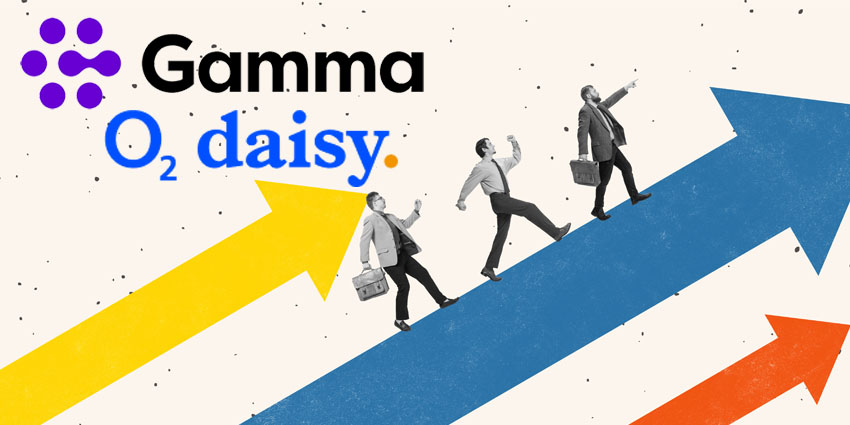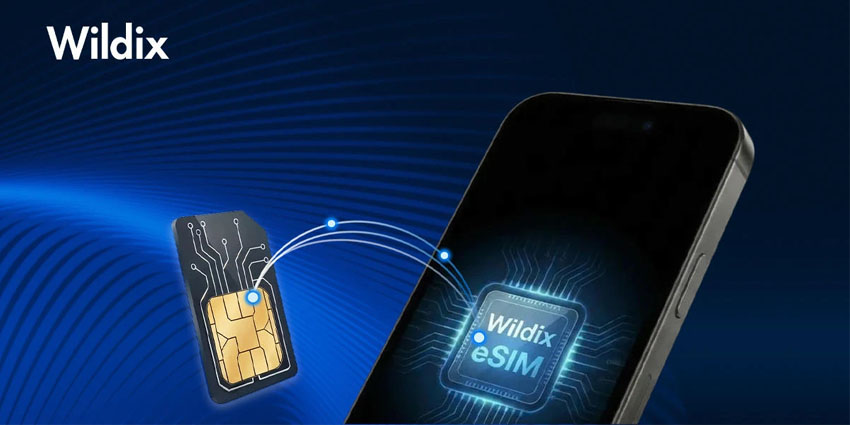Hybrid work may be here to stay, but the tools businesses rely on to support it are anything but settled. The communications stack remains fragmented, with UCaaS, mobile connectivity, and fixed-line services often spread across different providers, contracts, and platforms. For many tech leaders across these organisations, it is a legacy headache that undermines agility, pushes up costs, and frustrates employees.
Enter Gamma and O2 Daisy. The two firms have announced a partnership designed to consolidate these silos, bringing together Gamma’s strength in UC and cloud telephony with O2 Daisy’s scale in business mobility and connectivity. The pitch is straightforward: a single relationship, a streamlined ecosystem, and an end to the inefficiencies that have dogged enterprise comms for decades.
Why Organisations Should Pay Attention
For IT and finance leaders alike, vendor sprawl is a source of hidden cost and a fundamental nuisance. Multiple contracts, overlapping service portfolios, and inconsistent SLAs tie up procurement resources and complicate IT strategy.
This Gamma and O2 Daisy partnership promises to:
- Reduce vendor complexity by consolidating UC, mobile, and connectivity into one relationship.
- Accelerate digital transformation by replacing fragmented, legacy communications with a unified, cloud-first platform.
- Improve employee experience with seamless collaboration across devices and networks.
- Cut costs through bundled services and simplified billing.
“Running your own communications platform is increasingly complex,” said Andrew Belshaw, CEO at Gamma. “From rising compliance pressures to the cost and pace of innovation, it simply doesn’t make commercial sense for many providers.”
That’s where Gamma comes in. Our relationship with O2 Daisy is built on years of trust, shared success and doing what’s right. This agreement reflects all of that. By combining their customer focus with our platform scale and expertise, we’re creating the right environment for sustainable growth.”
The Strategic Context
The deal is well-timed. Gartner research suggests that more than 80 percent of businesses will adopt a cloud-first communications strategy by 2026.
At the same time, CFOs are putting pressure on CIOs to cut tech costs while enabling growth. This creates a dual imperative: simplify and save, but without compromising employee experience or innovation.
The Gamma–O2 Daisy tie-up could prove particularly attractive for organisations with large mobile workforces, logistics firms, retailers, or healthcare providers. Instead of juggling separate UC and mobility providers, these organisations could manage all comms in one integrated environment, reducing administrative overhead while improving operational resilience.
A nationwide retail chain, for instance, could unify back-office collaboration tools with field staff mobile communications, ensuring everyone from headquarters to the shop floor works from the same platform. That means fewer missed connections, faster customer response times, and measurable productivity gains.
What It Means for the Market
The UCaaS sector has already seen significant consolidation, as buyers increasingly favour end-to-end providers. Partnerships like this one show how telcos and UCaaS players are beginning to blur lines, with mobility and UC converging into a single enterprise offer.
For CIOs, the trend raises a key strategic question: is it better to build a best-of-breed stack of specialised providers, or consolidate with fewer partners who can deliver breadth, scale, and integration? The Gamma–O2 Daisy announcement makes a strong case for the latter.
Ponder This…
This partnership is yet another signpost of where business communications is heading. The central nervous system of the modern business will not be a patchwork of providers but an integrated, flexible, cloud-based platform that spans office, home, and mobile environments.
For IT leaders, the real question is whether current providers are authentically accelerating that journey.
Virgin Media O2, Daisy Group Confirm Merger Into £3Bn Telecoms Titan to ‘Revolutionise IT Landscape’
This Gamma partnership marks one of O2 Daisy’s first major moves following its merger in May of this year.
Virgin Media O2 and Daisy Group agreed to merge their B2B businesses, creating a UK communications and IT giant valued between £2.5 and £3 billion (including debt). Virgin Media O2 will hold a 70 percent stake, with Daisy Group retaining 30 percent.
The new venture, serving an estimated 700,000 SME customers, is chaired by Daisy Founder Matthew Riley, with Jo Bertram, Managing Director of Virgin Media O2 Business, stepping in as CEO.







